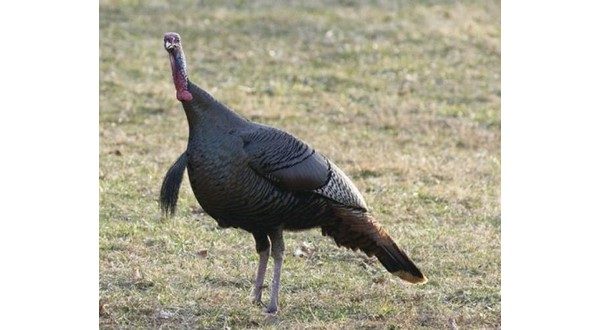
Arkansas hunters harvested and checked 7,010 eastern wild turkeys during the 2021 turkey season, which concluded May 9. While the harvest showed a similar decrease to that of surrounding states, Arkansas Game and Fish Commission biologists are hopeful for the future.
“We did expect to see a decline in checked birds this year,” Jeremy Wood, AGFC Turkey Program coordinator, says. “With conservative season dates and new regulations in place to spread hunting pressure, we tried to give turkeys as much of a chance as we could to breed and create future hunting opportunities while maintaining a reasonably good hunting experience. We have to think about the resource first if we want to see the population increase.”
Wood says poor reproduction two years ago, followed by an increase in harvest last year from increased participation related to COVID-19 may have added to the declining number of turkeys checked.
“I’m still encouraged by the jake reports I’ve been hearing from hunters and biologists following a good reproductive year in 2020,” Wood says. “These birds will be the gobblers we can hunt next year.”
One increasing number that has wildlife biologists and wildlife enforcement officers concerned is the number of individuals caught baiting wild turkeys this year.
“We’ve seen a large increase in the number of baiting cases made this season,” Brad Young in the AGFC Enforcement Division says. “We even had one district that had more baiting sites to tend to than we had officers.”
According to Young, one district had 20 illegal bait sites located to monitor on opening morning of turkey season, but only 14 officers to handle the cases.
“It takes a lot of time and hard work to make a baiting case,” Young says. “You have to spend a lot of early mornings getting out there before the violator shows up. And you may work a baited site a few times before you catch them, so it’s a big deal when you catch one, but this year we saw a huge increase in the amount of baiting cases we found.”
There’s more downside to baiting than unethical harvest and the opportunity to overharvest birds. Baiting carries with it some concerns with disease transmission as well as concerns with nest predation. Studies conducted on nest success in wild turkeys indicate that nests in close proximity to a baited area have higher rates of nest predation than those further from these sites. Raccoons, skunks and other nest predators attracted to the free meal at bait sites were able to more readily find nearby turkey nesting locations, wiping out the chance of a successful hatch.
Young says catching turkey poachers is a particular point of pride with many officers like himself.
“Arkansas has a lot of ducks come through each year, and we make a ton of deer cases, but turkey are a species that we know really need our help,” Young says. “As hunters, all of us know how vulnerable turkeys can be to baiting, and when someone is baiting, they’re taking away opportunities from everyone else who’s trying to do it right.”
WebReadyTM Powered by WireReady® NSI










